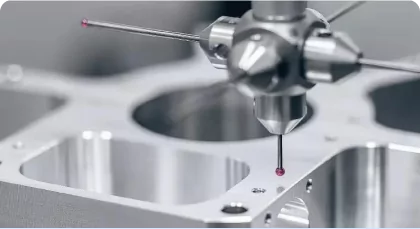High Accuracy Prototype Part Production
High Accuracy Prototype Part Production – Precision from Concept to Reality
In today’s fast-paced industries, the ability to move quickly from design to functional prototype is critical. Whether in automotive, aerospace, medical devices, or consumer electronics, high accuracy prototype part production ensures that concepts are validated with precision before moving into full-scale manufacturing.
What Is High Accuracy Prototype Part Production?
High accuracy prototype part production refers to the creation of prototype components that meet extremely tight tolerances and exact design specifications. Unlike standard prototyping, which is often used just for visual models, precision prototyping provides parts that are fully functional and capable of undergoing real-world testing.
These prototypes are typically manufactured using advanced processes such as:
CNC machining for complex geometries and micron-level accuracy
3D printing with high-resolution technology for intricate designs
Injection molding for prototype plastic components
Metal prototyping with alloys like titanium, aluminum, and stainless steel
Benefits of High Accuracy Prototype Part Production
Design Validation – Accurate prototypes allow engineers to confirm fit, form, and function before mass production.
Faster Time to Market – Rapid turnaround reduces delays in the development cycle.
Cost Efficiency – Detecting design flaws early avoids expensive tooling and production mistakes.
Realistic Testing – Functional prototypes enable stress testing, thermal analysis, and performance validation.
Custom Solutions – From one-off samples to small batches, production can be tailored to specific project needs.
Industries That Rely on Precision Prototyping
Medical device prototyping – Surgical tools, implants, and diagnostic equipment must be tested thoroughly for safety and compliance.
Aerospace and defense prototyping – Lightweight, high-strength materials and exact tolerances are essential.
Automotive prototype components – Engines, transmissions, and electronic parts require durability testing.
Consumer electronics prototyping – Small, detailed parts for smartphones, wearables, and connectors demand accuracy.
Key Capabilities in Precision Prototype Manufacturing
A reliable prototype machining company specializing in high accuracy production typically offers:
5-axis CNC machining for complex designs
Surface finishing and polishing for functional and aesthetic quality
Micro machining for miniature precision parts
Rapid prototyping services with fast delivery
Full inspection and measurement reports using CMM and advanced metrology tools
Frequently Asked Questions
Q1: How accurate are prototype parts?
Tolerances can be as tight as ±0.005 mm depending on the material and manufacturing process.
Q2: Can both metals and plastics be prototyped?
Yes, materials range from aluminum, stainless steel, and titanium to engineering plastics like ABS, POM, and polycarbonate.
Q3: Do you offer both one-off prototypes and small-batch runs?
Yes, precision prototyping covers both single functional samples and low-volume pilot production.
Q4: How fast can high accuracy prototypes be delivered?
With modern CNC and rapid prototyping technologies, parts can often be produced within days.
High accuracy prototype part production bridges the gap between design and mass manufacturing. By partnering with an experienced precision machining and prototyping company, businesses can bring ideas to life faster, with confidence in quality and performance.








